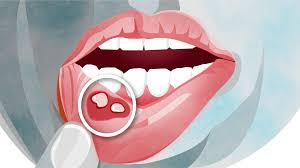Women need Folic Acid in pregnancy -important for childbearing
Women of childbearing age are recommended to take 400 micrograms of folic acid daily to prevent possible birth defects should they become pregnant, findings from two new studies indicate that most eligible women, especially those between 18 and 24 years of age.
These findings are concerning given the well-established link between low folate levels during pregnancy and the occurrence of neural tube defects, which include abnormalities in the development of the brain and spine, often resulting in severe disability or death.
To provide maximum benefit, folate levels need to be adequate from the start of the pregnancy, not just when a woman becomes aware of her pregnancy.
In 2007, the percentage of all eligible women taking these supplements was 40 percent. The lowest prevalence of folic acid supplementation was seen in women between 18 and 24 years of age - ranging from 25 percent to 31 percent. Women in this age group also had lower awareness (61 percent) and knowledge (6 percent) about the importance of folic acid than women in other age groups.
Factors associated with a greater likelihood of taking folic acid-containing supplements included white race, non-Hispanic ethnicity, higher education, and greater household income.
Caution About Folic Acid Supplements
Beware of the
interaction between vitamin B12 and folic acid
Intake of supplemental folic acid should not exceed 1,000 micrograms (μg) per day to prevent folic acid
from triggering symptoms of vitamin B12 deficiency . Folic acid supplements can correct the anemia associated with vitamin B12 deficiency. Unfortunately, folic acid will not
correct changes in the nervous system that result from vitamin B12 deficiency. Permanent nerve damage can occur if vitamin B12 deficiency is not treated.
It is very
important for older adults to be aware of the relationship between folic acid and vitamin B12 because they are at greater risk of having a vitamin B12 deficiency. If you are
50 years of age or older, ask your physician to check your B12 status before you take a supplement that contains folic
acid. If you are taking a supplement containing folic acid, read the label to make sure it also contains B12 or speak
with a physician about the need for a B12 supplement.
What is the health risk of too much folic acid?
Folate
intake from food is not associated with any health risk. The risk of toxicity from folic acid intake from supplements
and/or fortified foods is also low. It is a water soluble vitamin, so any excess intake is usually excreted in urine.
There is some evidence that high levels of folic acid can provoke seizures in patients taking anti-convulsant
medications . Anyone taking such medications should consult
with a medical doctor before taking a folic acid supplement.
Folate supplement will revive GUM and prevent gum disease. Folate
will stop bleeding gums and gum atrophy.
Folate deficiency will cause gray hair and severe fatigue. You get mouth ulcers once in a while they are due to Folate deficiency. Folate deficency will cause memory problems and muscle weakness.Pins and beedle sensation is common too as well as depression.
Folate and Folic acid are know as Vitamin B-9.
Te deficeincy will cause a macrocyatic anemia, diarrhea , weight loss and elevated Homocestine which causes strokes and heart attacks.